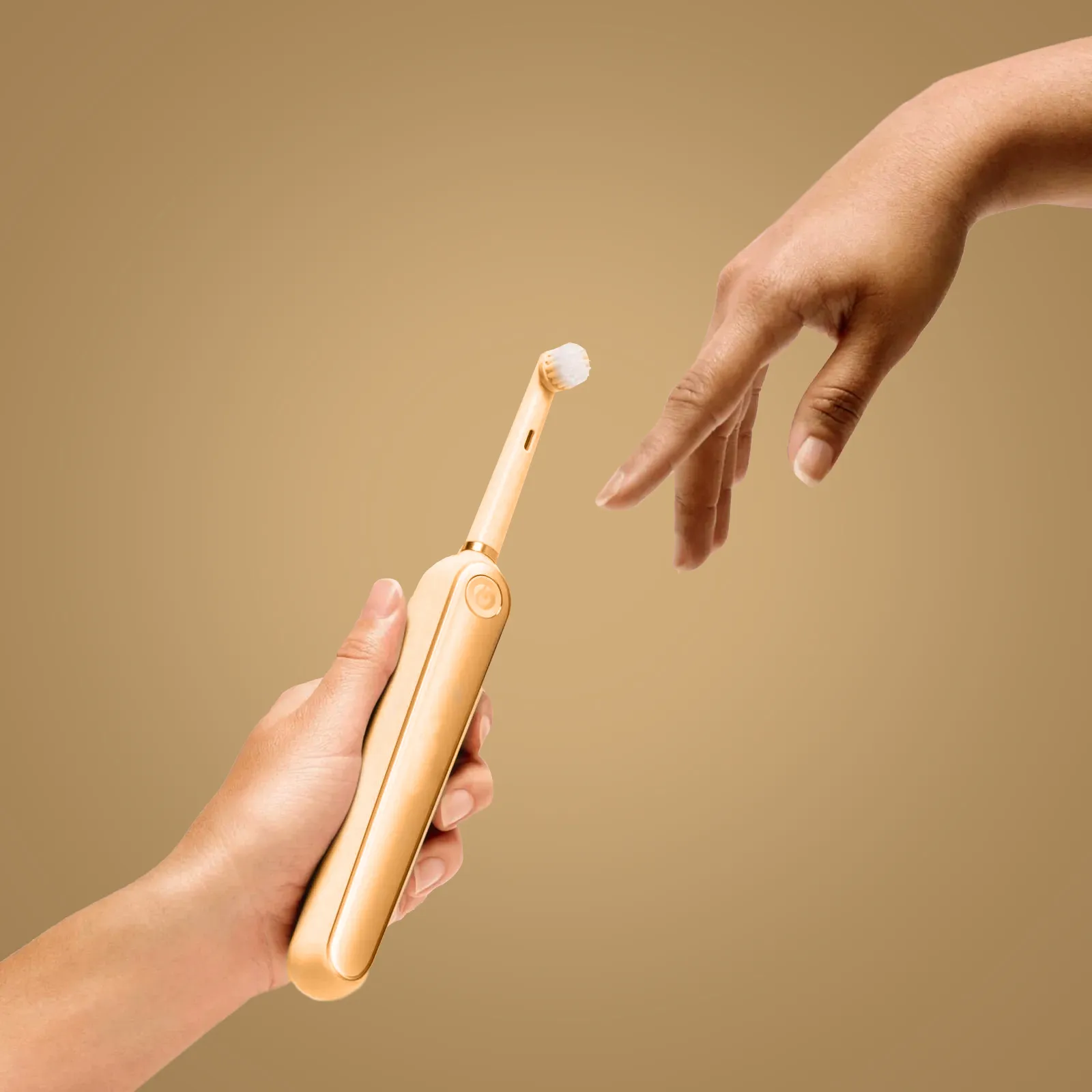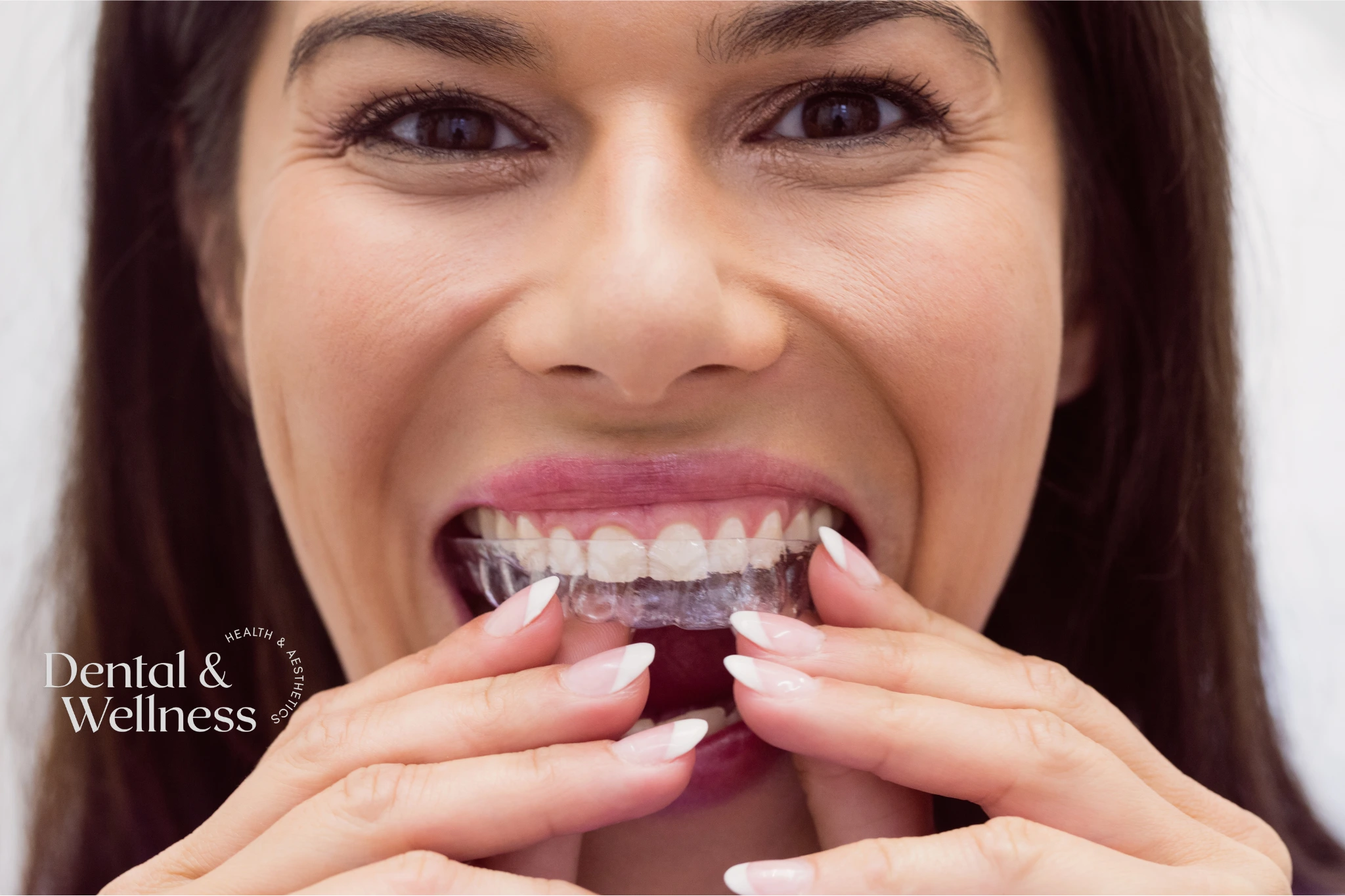- It’s important to clean your night guard to prevent bacterial build-up, infections and odour.
- Cleaning a nightguard usually entails rinsing and brushing with toothpaste at regular intervals. You may also soak it in a cleaning solution for a deeper clean.
- It’s advisable to rinse a night guard daily while undertaking deeper cleans weekly and during dental appointments.
- Remember to store your night guard in a clean, plastic container, stored outside the bathroom in a cool, dry place.
- You should replace your night guard if you catch indications of wear and tear, such as poor fit and obvious discomfort.
Mastering Night Guard Care
Night guards effectively protect your teeth from grinding or clenching during sleep and help prevent breakage or chipping during sports.
If you use a night guard for your teeth, it’s important to follow a few maintenance tips. This will extend the lifespan of your night guard while simultaneously preserving your oral health.
In this step-by-step aftercare guide, we will discuss how to clean your night guard and the best practices for safe storage.
Why Night Mouth Guard Cleaning is Important
Night guards are usually constructed from materials such as acrylic resin, vinyl, or thermoplastic. They come in various designs, including soft, hard, or dual-laminate (soft on the inside and hard on the outside).
Unfortunately, they’re usually porous and easily hold plaque-causing bacteria or food particles in the absence of a regular care routine.
At Dental and Wellness London, we always advise our patients to conduct timely mouth guard cleaning to prevent the following issues:
- Bacterial buildup
- Bad odour
- Gum disease or infections
How To Clean Your Night Guard
Cleaning a night guard only takes a couple of minutes. The hard part is incorporating this step within your usual oral hygiene routine.
Here’s how to keep your night guard clean:
- Rinse the guard immediately after each use with cool water.
- You can use a toothpaste and clean it with a dedicated toothbrush, just as you would with your teeth. Remember to be thorough and clean small nooks and crannies that can hold debris.
- Soak the guard weekly in a cleaning solution. This helps with deep cleaning. You can use:
- Denture cleaner (follow the instructions provided on the packaging)
- A solution of mouthwash (alcohol-free is recommended) and water. The usual ratio is a capful of mouthwash in one glass of water.
- A solution with equal parts of apple cider vinegar/white vinegar and water.
- A solution with equal portions of water and hydrogen peroxide.
- After cleaning, let your night guard air dry completely before storing.
- You can carry your night guard to appointments with your oral healthcare provider. They can perform deep cleaning for you and advise you on your routine.
Additional Tips:
- Never use abrasive or very potent cleaners. If your toothpaste has a higher fluoride concentration or uses a stronger formula, we recommend brushing with mild liquid detergent instead.
- Don’t soak your night guard too long, even in mild solutions. After soaking your night guard in any cleaning solution, ensure you rinse it with cool water.
- If you soak your night guard in a vinegar solution, you can dip it in a hydrogen peroxide mixture to get rid of the vinegar smell and taste as well as any discolouration.
- Don’t use your own toothbrush to clean it and opt for one with soft or very soft bristles.
How to Store Your Night Guard
.jpg)
An essential component of keeping your night guard clean is ensuring you store it in an appropriate manner. Cleaning the guard without ensuring proper storage conditions ultimately negates your efforts, speeding up the wear and tear process.
Follow the steps below to store your night guard:
- Store it dry in a hard plastic container.
- Avoid direct sunlight.
- Never place it in the washroom.
- Always keep the case clean and dry by rinsing it with a mild soap or liquid detergent (usually at the same time you clean the guard). Let it air dry completely before use.
- Make sure the case has ventilation.
When Should You Replace Your Night Guard?

The lifespan of a night guard can range from 1 to 2 years to over 5 years. This depends on several factors, including its material, frequency of use, maintenance, and more.
Here are some typical signs that it’s time to replace your guard:
- Obvious indications of wear and tear, such as bends, scratches and even discolouration that won’t go away
- Poor fit or a change in how it feels in your mouth
- Discomfort when sleeping or biting
- Broken parts
Conclusion
Night guards are among the most notable products resulting from advancements in dentistry, playing a vital role in protecting your teeth and correcting behaviours such as clenching or grinding. However, like with every other dental aid, it requires a dedicated care routine.
Poor oral hygiene can have an invisible impact on overall health. It’s prudent to develop a unique routine that suits your oral needs and set up timely consults with the nearest dental care centre.
Dental and Wellness London is a comprehensive clinic providing complete oral health and wellness services. Home to some of the best dentists in Islington, we can guide you on the most effective ways to maintain and clean your night guard, while also helping you build healthier habits for enduring oral health and wellness.
Book an appointment with our experts to revolutionise your approach to health and access high-quality and compassionate dental treatments in London.
Call us: 02081274567
Our address: 222 Essex Rd, London N1 3AP, United Kingdom
FAQs
- How do you clean night guards?
Rinse your night guard with cool water after each use and gently brush it with a soft-bristle toothbrush. You can also soak it in a mild cleaning solution for a deeper clean. Which method you choose depends on your routine and comfort.
- How often should I clean my night guard?
Daily cleaning keeps bacteria and odours at bay, while a weekly soak ensures a thorough deep clean. Your dentist can guide you on how often is best for your specific needs.
- How do I deep clean my night guard?
Soak it in a denture cleaner, diluted mouthwash, or vinegar solution to remove buildup. The key is to use gentle, non-abrasive solutions that won’t damage the material.
- When should I dry and store my night guard?
Always let your night guard air dry fully before placing it in a ventilated case. Proper storage helps prevent bacteria growth and prolongs its life.
- When should I replace my night guard?
Replace it when you notice cracks, warping, or persistent discomfort. Your dentist can confirm if it’s time for a new one based on wear and fit.













